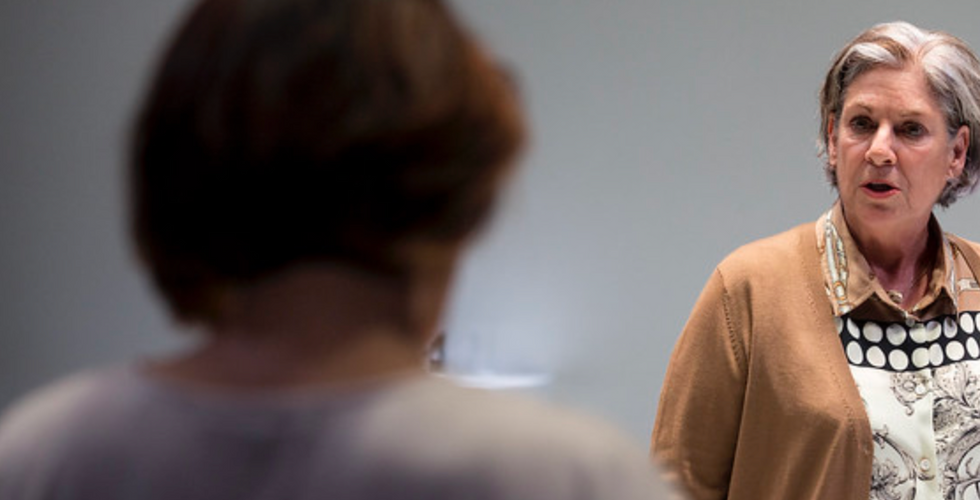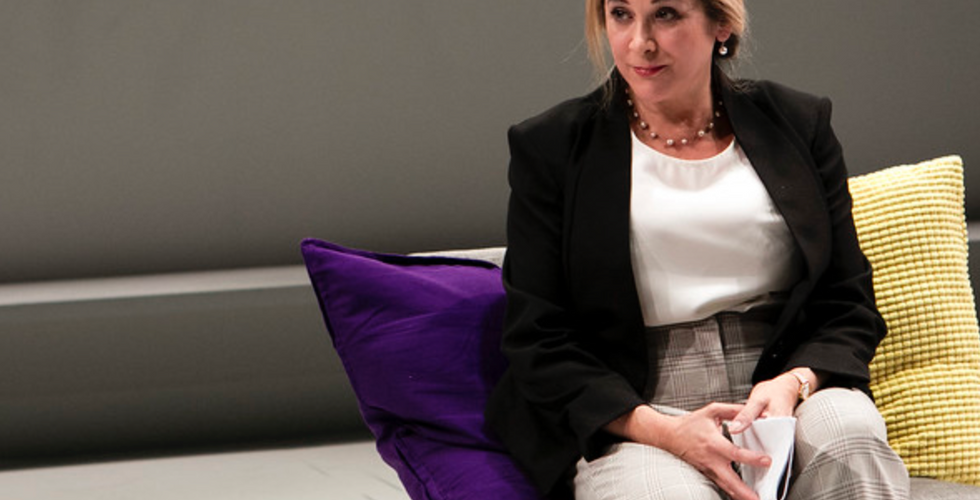Review: Stop Girl at Belvoir
- Mar 28, 2021
- 3 min read
Review By Michelle Sutton “Honour the dead” and “don’t make the situation worse” are the mantras that keep foreign correspondent Suzie Broughton professional and calm while reporting from the dangerous and volatile environment of Kabul, Afghanistan. The play opens to a scene of Suzie recording under her blanket in her room in the makeshift international bureau she helped set up. Suzie is excellent at her job, she exudes confidence and is adamant that she is “good at trauma”. She preaches to her friends that the key to surviving her role is to “never connect.” Stop Girl is directed by Anne-Louise Sarks and written by award-winning journalist Sally Sara. Sara worked as a foreign correspondent for the ABC for many years and reported from over 30 different countries including Iraq, Sierra Leone and Zimbabwe. Stop Girl is Sara’s first play. Although an acclaimed journalist, she has expressed that theatre was always a part of her life and trips to Adelaide with her mum to see theatre were a sacred part of her growing up experience. The script is especially impressive for a first-time playwright, but would be impressive for any writer. The witty, snappy dialogue between Suzie and her best friend Bec is surprising and delightful. The script is distinctly Australian, with many clever quips about Sydney “the dogs in Potts Point don’t bite, they just talk about you behind your back” and nostalgic nods to Suzie’s upbringing in country South Australia. The show is semi auto-biographical which lends a noticeable depth of care and consideration to the challenging subject matter. The set is effectively sparse, white floors and wall with minimal props of a chair, a bench, a desk and the reporter’s tools of trade: a laptop, a camera and microphone. When Suzie records a piece to camera it appears on the wall, later the wall is where we see projections of the traumatic memories that haunt her. Changes of location and scene are marked by a short glitch-like sound that help create the sense of Suzie’s mind becoming increasingly overwhelmed and out of step with time and reality. The cast consists of five superb actors who all deliver thoughtful, intelligent and heartfelt performances. Sheridan Harbridge as the protagonist Suzie valiantly shoulders the bulk of the work, appearing on stage throughout the entire hour and 40 minutes the play runs. The chemistry between Harbridge and Amber McMahon as best friend Bec is a beautiful representation of decades-long female friendship, where they can joke about sneaking sips of cheap pinot grigio at the school athletics carnival one moment and be calling each out the next. Mansoon Noor plays Atal, Suzie’s Afghan cameramen who she assists to seek asylum in Australia when continuing in Kabul becomes too dangerous for himself and his family. Atal provides the catalyst for much of Suzie’s growth and realisations. Noor plays Atal’s comedic lines with innocence and offers humble wisdom and wake up calls to Suzie’s white western privilege which she also must confront in order to understand her place in Afghanistan and if she was needed there at all. Suzie’s mother is played wonderfully by the extremely talented Toni Scanlan. She is warm and supportive, even though she cannot fully understand what is happening inside her daughter’s mind. The last scene between Suzie and her mother is delicate, funny, touching, and a testament to the vulnerability of Harbridge and Scanlan and the strength of their craft. As the audience we watch Suzie’s entire worldview fall apart as her stubborn construction of control and stoicism is ripped away. Suzie goes on a journey with her mental health, as she is forced to finally, finally confront the horrific events she has witnessed and admit that despite her mantras of professionalism and distance; they have changed her. She is not the same person as when she left Australia. Portraying such a transformation is not for the faint of heart, but Harbridge takes it on with sensitivity and restraint. The scenes with her psychologist, played compellingly by Deberah Galanos, reveal the extent to which Suzie has compartmentalised and justified her experiences leading to a powder-keg situation inside herself. The psychologist explains that it is not natural for human beings to continually put ourselves in life-or-death situations, the repeated exposure to trauma is going to create wear and tear on our bodies and our minds. Sally Sara honestly wades through the impacts of war trauma on journalists, and addresses the ethical dilemmas involved in her unique line of work. This is a story that only she could tell, and she tells it with great tenderness and a distinctly Australian humour. Stop Girl is a great play that will take you through the darkest of places but ultimately drop you off with a firm hug and squeeze of the shoulder, reminding you to keep on connecting no matter how scary it can be.
Image Credit: Brett Boardman


















